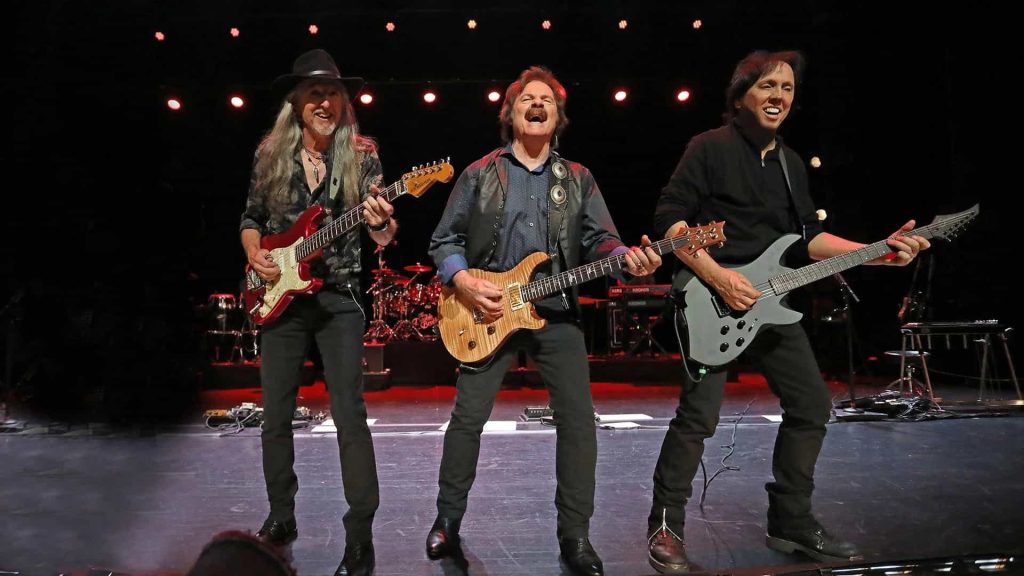
A Journey of Freedom and Rhythm: Long Train Runnin’ captures the essence of escape and the relentless pulse of life’s journey.
Long Train Runnin’, released in 1973 as part of The Doobie Brothers‘ fourth studio album, ***Long Train Runnin’***, stands as a testament to the band’s unique blend of rock, funk, and soul. While it didn’t top the charts, peaking at number eight on the Billboard Hot 100, its impact on popular culture has been undeniable. The song’s infectious groove, driven by the distinctive guitar riff and the steady rhythmic backbone, has resonated with generations of listeners, becoming an enduring classic.
The song’s origins are quite interesting. It started as an instrumental track, a simple jam session where the band explored a catchy riff. This riff, which became the song’s signature hook, was so compelling that it demanded lyrics. The lyrics, penned by guitarist and vocalist Patrick Simmons, evoke images of a train journey, symbolizing the relentless forward motion of life, escape, and perhaps even a touch of wandering. The lyrics aren’t overly complex or narrative-driven; instead, they serve as a backdrop for the music, enhancing the overall feeling of movement and momentum. The phrase “without love” is repeated throughout the song, adding a layer of melancholy and longing. One interpretation suggests that the train symbolizes the passage of time and the opportunities missed or the relationships left behind.
The magic of Long Train Runnin’ lies in its simplicity and its ability to create a mood. The song’s structure is straightforward, built around the repeating riff and a basic verse-chorus arrangement. Yet, within this framework, the band creates a dynamic and engaging listening experience. The interplay between the guitars, the driving bassline, and the crisp drumming is simply masterful. The song has a loose, almost improvisational feel, as if the band is jamming in the studio, capturing a moment of pure musical inspiration.
For listeners of a certain age, Long Train Runnin’ evokes powerful memories of a specific era. It’s a soundtrack to road trips, summer days, and youthful exuberance. The song’s energy is infectious, making it impossible not to tap your foot or nod your head along with the rhythm. It embodies a sense of freedom and possibility, a yearning for something more that resonates deeply with the human spirit. It reminds us of a time when music was less about elaborate production and more about raw energy and genuine emotion.
The song has also had a lasting impact on popular culture, being featured in numerous films, television shows, and commercials. This continued exposure has helped Long Train Runnin’ remain relevant to new generations of listeners, ensuring its place as a timeless classic. It’s a song that transcends generational divides, appealing to anyone who appreciates good music and the feeling of being swept away by a powerful groove.
Looking back, Long Train Runnin’ isn’t just a song; it’s an experience. It’s a journey, a feeling, a memory. It’s a testament to the power of music to transport us to another time and place, to evoke emotions, and to connect us to something larger than ourselves. It’s a reminder of the enduring magic of The Doobie Brothers and their unique contribution to the landscape of American music. It’s a classic that continues to run, carrying its rhythm and spirit through the decades.